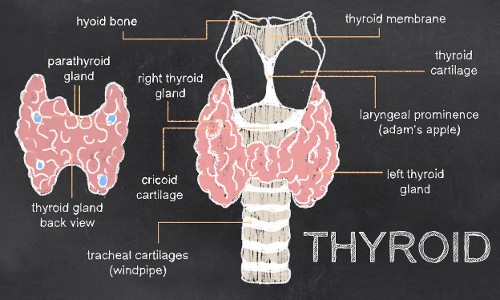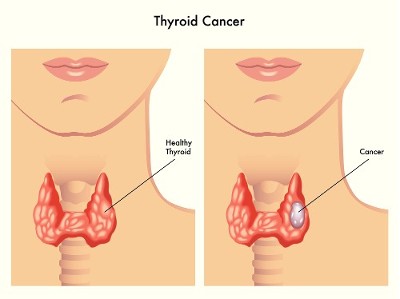Thyroid Disease
 |
The thyroid gland is an “H” shaped gland wrapping around the front of the trachea (windpipe) at the base of the neck, just above the collar bones. The thyroid gland makes thyroid hormone, which helps to regulate many of the body’s metabolic processes. We see many patients with masses or “nodules” on their thyroid glands, as this is a very common condition. In fact, a large percentage of people have thyroid nodules that they do not (and may not ever) know about but due to the increasing prevalence of diagnostic imaging for other medical problems we are discovering more and more of these masses incidentally. If you have been diagnosed with a thyroid nodule, don’t panic! Only a fraction of all patients with a thyroid mass need surgery, and only a much smaller fraction have cancer. Most patients who do turn out to have thyroid cancer tend to do VERY well.
|
|
Your surgeon will look at factors such as the size of the nodule(s), your symptoms (if any), and other risk factors for cancer such as a history of radiation, male sex, and age less than 25 or greater than 60 years old to help decide your management. If the nodule is small and there are no additional risk factors, your doctor may recommend simply following up with ultrasound to evaluate for growth of the mass over time. Some patients may be referred for fine needle aspiration (FNA) where a small needle is used to aspirate cells from the mass, usually with ultrasound guidance in an attempt to identify cancer in the nodule.
In cases where preoperative biopsy (such as FNA) confirms the presence of cancer, your surgeon will likely recommend removal of the thyroid gland (thyroidectomy). Thyroidectomy may also be recommended in cases where a nodule is producing too much thyroid hormone and causing symptoms (hyperthyroidism), or in cases where the concern for cancer is high enough based on the size of the nodule and other risk factors that may be present.
|
 |
There is no simple “one-size-fits-all” formula for who does or doesn’t need surgery, and the decision to have surgery should be based on discussion with a qualified, experienced physician who has had the opportunity to examine both the patient as well as review his or her medical history.